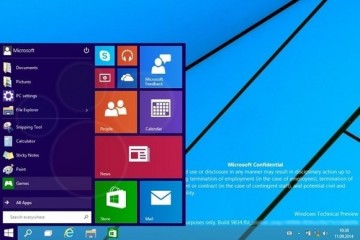 The US’s obsession with imaginary terrorists has resulted in what appears to be a McCarthy style purge of academics.
The US’s obsession with imaginary terrorists has resulted in what appears to be a McCarthy style purge of academics.
According to Science the latest to be purged is Valerie Barr who, in 1979, when she was 22, handed out leaflets, stood behind tables at rallies, and baked cookies to support two left-wing groups, the Women’s Committee Against Genocide and the New Movement in Solidarity with Puerto Rican Independence.
In a few years, she had become a top software academic and found herself too business for such causes and a quarter-century later, she’s a tenured professor of computer science at Union College in Schenectady, New York, with a national reputation for her work improving computing education and attracting more women and minorities into the field.
In August 2013 she took a leave from Union College to join the National Science Foundation (NSF) as a program director in its Division of Undergraduate Education and that is when she found herself in trouble with the terror police.
The FBI insists that Barr lied during a routine background check about her affiliations with “a domestic terrorist group” that had ties to the two organisations to which she had belonged in the early 1980s.
On 27 August, NSF said that her “dishonest conduct” compelled them to cancel her temporary assignment immediately, at the end of the first of what was expected to be a two-year stint.
Behind all this craziness is an obscure agency within the White House called the Office of Personnel Management (OPM) it has huge control over hiring workers because it is supposed to arrange background checks.
Ironically labelling her a terrorist and booting her off the progamme is a security own goal. Barrs job was to help the US combat cyberterrorism.
So how much of a security threat was she? Well the two groups she was involved with were affiliated with a third, the May 19 Communist Organization (M19CO), that carried out a string of violent acts, including the killing of two police officers and a security guard during a failed 1981 robbery of a Brink’s truck near Nyack, New York.
When she was asked if she had ever been a member of an organization “dedicated to the use of violence” to overthrow the U.S. government or to prevent others from exercising their constitutional rights she had said no.
But since in the mind of the FBI the three groups were all linked she must have known that she was a member of the M19CO/
“I found out about the Brink’s robbery by hearing it on the news, and just like everybody else I was shocked,” she recalls.
Barr says she was casually acquainted with two of the convicted murderers, Judith Clark and Kuwasi Balagoon (née Donald Weems) but had no prior knowledge of their criminal activities.
Barr also has some ammunition in the form of the fact that the FBI investigator into her case was, according to his own blog, somewhat of a conservative who likes to tell stories about thumping atheist academics. Barr is a feminist and a lesbian.
All this calls into question whether the US government is hiring scientists on the basis of their ability to do a job or shooting itself in the foot following the same McCarthest mindset which paralysed the US for years.
Basically it means that it does not matter how good a scientist or computer security expert you are, if you are a woman, a lesbian or belonged to groups when you were a kid which we think might have been left wing extremists, we don’t want you working for our government.
 The rise of the internet of things, which is likely to mean billions of devices are connected to LTE has security fallibilities that need to be quickly addressed.
The rise of the internet of things, which is likely to mean billions of devices are connected to LTE has security fallibilities that need to be quickly addressed.


















